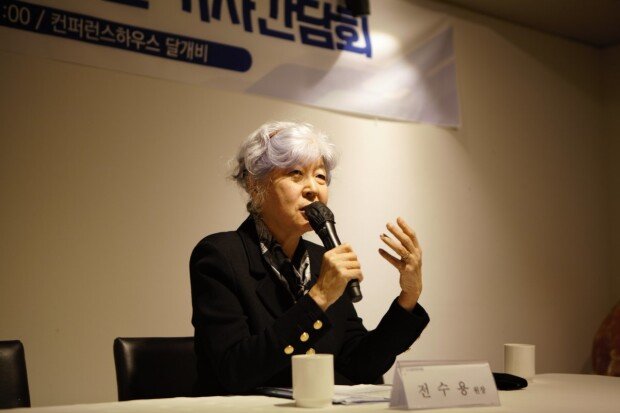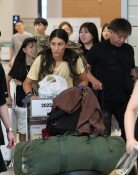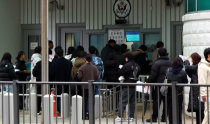Literature Translation Institute aims to establish graduate school for translation
Literature Translation Institute aims to establish graduate school for translation
Posted November. 12, 2024 08:13,
Updated November. 12, 2024 08:13

In the wake of Han Kang's Nobel Prize in Literature, the Literature Translation Institute of Korea has decided to actively pursue upgrading its translation academy to a graduate school. It will also strive to strengthen the global literary network by increasing exchanges with overseas writers, translators, and publishers.
“The Nobel Prize in Literature is not the end, but the beginning,” said Jeon Soo-yong at a press conference on her 100th day at the institute on Monday. “For Korean literature to become world literature, forming international discourse and building a foundation for critique must be strengthened,” she said, emphasizing the need to establish a graduate school of translation.
Currently, the Literature Translation Institute of Korea operates the Translation Academy, a non-degree program for students in seven languages. The plan is to upgrade it to a full-time master’s degree program, aiming to improve the quality of translations and create opportunities for local translators to take on roles in schools and other institutions.
"It's difficult for a translator to make a living solely from translation," Jeon remarked. "If students can earn a master's degree, they can return to their home countries and continue translating while working at schools. They can train future translators, serve as pro-Korea advocates, and promote Korean literature." The institute had previously sought to establish a graduate school of translation under former leader Kwak Hyo-hwan but reportedly faced obstacles due to opposition from the Korean interpretation and translation sector.
The institute has also outlined a plan to promote global discourse on Korean literature, moving beyond Korean literature simply being translated and consumed. It aims to translate five major works of classical and modern literature that have not yet been translated, selecting and publishing five pieces from each era annually. Additionally, critical anthologies will be translated and released. To foster connections with international literary communities, the institute will actively organize events such as the Seoul International Writers' Festival, providing a platform for collaboration and dialogue among domestic and international writers, translators, and publishers.
"When watching a movie, instead of just watching a single film, people often follow a favorite director if there is an introduction to their work," Jeon said. "I will strive to create a compelling narrative for Korean literature."
김소민 somin@donga.com







